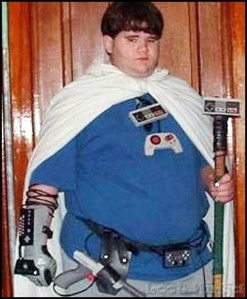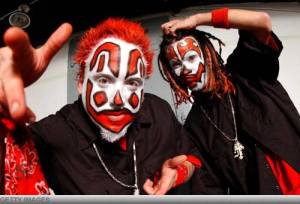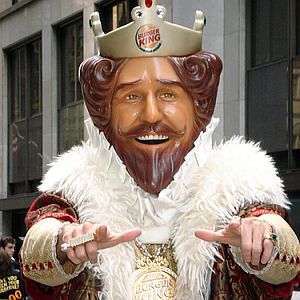 Sourcery by Terry Pratchett
Sourcery by Terry Pratchett
Yes, I know – I’ve gone on a Discworld bender. Just one, I thought to myself – I’ll just read Lords and Ladies and that’ll be it. But then I saw Small Gods just sitting there… looking at me. Next thing you know I’m halfway through Sourcery and I don’t know how I got there. I may need professional help…. What am I supposed to do, though? They’re quick, they’re easy, they’re entertaining! I promise, though – after this, I’ll leave the Discworld alone for a little while.
If I can.
The Discworld, being a flat world that is carried through space on the backs of four elephants, who in turn are standing – rather patiently, I think – on the back of a great turtle, is, understandably, a world awash in magic. There are magical creatures on the Disc – trolls and dwarfs and elves – and people who know how to use the magic that infuses the world. People like wizards.
If you want to be a wizard, there are ways to get there. The best thing you can do is to be the eighth son of an eighth son – that type is almost certainly destined for the more arcane arts. Once you’ve become a wizard, you dedicate yourself to one thing: magic. And late lunches, comfortable robes and your pointy hat, but mainly to magic. Wizards don’t marry. Wizards certainly don’t have children.Except for one wizard. Ipsalore the Red, the eighth son of an eighth son, broke this law of wizardry. He fell in love, ran away from the University, and had sons of his own. Eight of them. His youngest son, Coin, was the carrier of a great power. He was the eighth son of the eighth son of an eighth son. Wizardry squared.
A Sourcerer.
Back in the old days, when the magic on the disc was much wilder, there were sourcerers everywhere. They built great castles and fought horrible wars of magic, the effects of which still scar the Disc to this day. Modern wizardry is a pale reflection of those days, and for good reason. If wizards continued to battle as the sourcerers did, the disc would be broken beyond recognition. Every wizard knows this.
And yet, when young Coin comes to the Unseen University of Ankh-Morpork, bristling with power and holding a staff possessed by the ghost of his father, the wizards are more interested in the power he can give them than the responsibility they have. A sourcerer has arisen, and a new age of magic has come, with all of the terror that implies. Coin reminds them of what wizards used to be, and the power they used to have. Through him, old men who could barely manage a simple illusion are now able to re-shape the world with their wills. With a sourcerer behind them, there is nothing these wizards cannot accomplish.
Only one man can stop them. His name is Rincewind, and he really, really doesn’t want to get involved.Rincewind is a wizard (or, if you go by his pointy hat, a “Wizzard”), although he is so deficient in magical talent that it is believed that the average magical ability of the human population will actually goup once he dies. He wants nothing more than to be left alone to live a boring, mundane life. The universe, it seems, has different ideas. Together with Conina – the daughter of Cohen the Barbarian – and Nijel the Destroyer, Rincewind has to figure out how to stop a sourcerer from destroying the world.
This book is one of the early volumes of the Discworld series, and so it doesn’t quite have the depth that later books do. Oh, there’s certainly a message to be found in it – mainly on the subject of identity. Rincewind identifies himself as a wizard, despite having all the magical talent of a lump of silly putty, and cannot conceive of being anything else. The sourcerer Coin, on the other hand, has been told who he is to become, mainly by the spirit of his dead (and rather monomaniacal) father. Conina has the blood of heroes in her veins, but her dream is to wield nothing sharper than a pair of beautician’s scissors. And Nijel the Destroyer – who looks almost exactly the way his name sounds – desperately wants to be a barbarian hero, despite being about as muscular as a wet noodle.
Despite all of this, however, the characters succeed when they decide for themselves who they want to be. The ones who suffer the most are the other wizards – the ones who allow Coin to tell them who they are. They invest their entire sense of self in the inflated image fed to them by the sourcerer – an image of power and strength – and when it all comes crashing down around them, they are only left with shame and disappointment. In the end, they remain who they always were, and that is the tragedy of their downfall.So if there’s a lesson to be had in this book, that’s it: know who you are and be it, as hard and as loud as you can. Other than that, it’s a rollicking little adventure. Enjoy.
—————————————————
“It’s vital to remember who you really are. It’s very important. It isn’t a good idea to rely on other people or things to do it for you, you see. They always get it wrong.”
-Rincewind, Sourcery
—————————————————











































